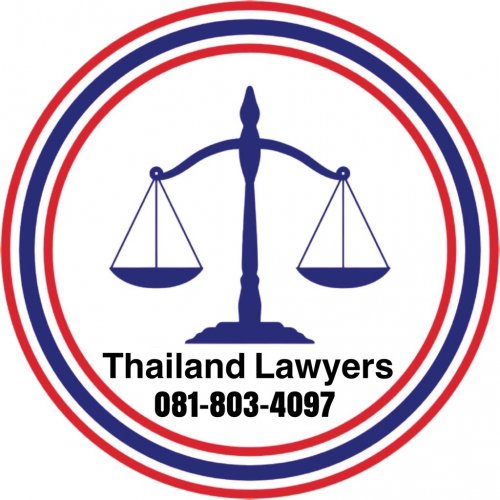Best Child Custody Lawyers in Pattaya
Share your needs with us, get contacted by law firms.
Free. Takes 2 min.
Free Guide to Hiring a Family Lawyer
List of the best lawyers in Pattaya, Thailand
Thailand Child Custody Legal Questions answered by Lawyers
Browse our 1 legal question about Child Custody in Thailand and read the lawyer answers, or ask your own questions for free.
- Change stepdaughter last name.
- Hi Me and my wife want to change my stepdaughter last name. My wife and stepdaughter is Thai and my wife has my last name and we want to change my stepdaughter's last name to the same last name as me and my wife. My wife have sole custody of... Read more →
-
Lawyer answer by Mahanakorn Partners Group Co., Ltd
We at Mahanakorn Partners Group (MPG) have over two decades experience in family law.
Read full answer
Thailand Child Custody Legal Articles
Browse our 3 legal articles about Child Custody in Thailand written by expert lawyers.
- What Are the Child Custody Laws in Thailand?
- Child custody laws in Thailand are a key part of Thai family law, especially for people experiencing divorce or separation in the country. These rules strive to safeguard the best interests of the child while balancing the rights and duties of both parents. Whether you are a parent, guardian, or... Read more →
- Child Custody, Support, and Legitimation in Thailand
- When it comes to family law in Thailand, understanding the legal terms surrounding child custody, support, and legitimation can be very confusing, stressful, and time-consuming. Nonetheless, the situation does not necessarily have to be so complicated. This article aims to provide clarity and guidance on the obligations and rights of... Read more →
- How to Find a Divorce Lawyer in Thailand
- Divorce is a difficult and emotionally taxing procedure that may be made even more difficult when it takes place abroad, such as may be the case in Thailand. Anyone may feel overwhelmed by the legal complexities, cultural variances, and other divorce-related issues. But with the right assistance, you may locate... Read more →
About Child Custody Law in Pattaya, Thailand
Child custody laws in Pattaya, Thailand, are primarily governed by the Civil and Commercial Code, along with specific family law provisions. These laws aim to protect the best interests of the child, ensuring their safety, education, and well-being. Custody can be awarded to one parent (sole custody) or both parents (joint custody), with courts evaluating factors such as each parent's ability to provide, the child's relationship with each parent, and the child's preferences in certain cases. Expatriates and foreigners residing in Pattaya should be particularly aware of how Thai law interfaces with their home country's legal system.
Why You May Need a Lawyer
There are several circumstances where seeking legal assistance for child custody in Pattaya is advisable. Common situations include complex custody disputes, international custody issues, when there are allegations of abuse or neglect, and if there is a breakdown in communication between parents. Lawyers can provide valuable guidance on your rights and help present your case in a way that prioritizes the interests of the child, facilitates negotiation, and ensures compliance with Thai legal standards.
Local Laws Overview
Several key aspects of local laws influence child custody matters in Pattaya, Thailand:
- Both parents are typically recognized as natural guardians under Thai law unless otherwise specified.
- The court's primary concern in custody cases is the welfare of the child, considering their emotional, educational, and health needs.
- Non-Thai nationals living in Pattaya may face additional challenges where international law and Thai law intersect, particularly in cases involving relocation or abduction.
- Joint custody is encouraged where possible, with visitation rights carefully structured if sole custody is awarded.
- The role of mediation is emphasized in legal proceedings to resolve disputes before they escalate to court trials.
Frequently Asked Questions
What does "best interests of the child" mean in Thai custody cases?
In Thai custody cases, "best interests of the child" refer to considerations around the child's safety, emotional and psychological well-being, education, and the ability to maintain a relationship with both parents.
Can a non-Thai parent get custody of their child?
Yes, a non-Thai parent can be granted custody, provided they demonstrate sufficient capability to support and nurture the child according to Thailand's legal standards and the child's best interests.
Is joint custody common in Thailand?
Joint custody is generally favored if both parents are deemed capable of meeting their responsibilities. However, the specific arrangement is always subject to the child's best interests.
How are custody laws applied to unmarried parents?
Unmarried parents can obtain custody agreements through court orders, with the child's welfare being the primary concern. It's possible for both parents to be awarded joint custody, or it might lean towards one parent having sole custody based on the circumstances.
What if one parent wants to relocate internationally with the child?
Relocation internationally requires court approval, and the parent must show that it serves the child's best interests. The other parent’s rights and relationship with the child are also key considerations in such cases.
How does a custody decision affect visitation rights?
Visitation rights are typically granted to the non-custodial parent to maintain the child-parent relationship. These rights ensure that the child's developmental needs and relationship with both parents are preserved.
Are custody arrangements through mediation legally binding?
If mediated agreements are documented and approved by the court, they become legally binding. Mediation is a preferred first step to avoid contentious court proceedings.
Can a custody order be changed?
Yes, custody orders can be modified if there is a significant change in circumstances or if it's determined that a change best serves the child's interests.
What is the role of the court in child custody cases in Pattaya?
The court’s role includes deciding custody based on the child's best interests, evaluating each parent’s suitability, and ensuring that legal standards and parental responsibilities are met.
What support is available for ex-pats dealing with custody cases?
Ex-pats can access legal support from practitioners experienced in international family law. Consular services may also provide guidance on navigating Thai legal requirements.
Additional Resources
For individuals seeking more information about child custody in Pattaya, the following resources may be helpful:
- The Office of the Judiciary in Thailand offers resources on family law.
- Local Pattaya legal aid groups provide consultation and support for family-related legal issues.
- International child protection bodies such as the Hague Conference on Private International Law can offer guidance on cross-border custody matters.
Next Steps
If you need legal assistance with child custody in Pattaya, consider consulting a lawyer specializing in family law. Gather all relevant documentation regarding your relationship with the child and any previous custody arrangements. Explore mediation services before pursuing formal legal action, and, if necessary, prepare to present your case in court, ensuring that the welfare of the child remains a priority.
Lawzana helps you find the best lawyers and law firms in Pattaya through a curated and pre-screened list of qualified legal professionals. Our platform offers rankings and detailed profiles of attorneys and law firms, allowing you to compare based on practice areas, including Child Custody, experience, and client feedback.
Each profile includes a description of the firm's areas of practice, client reviews, team members and partners, year of establishment, spoken languages, office locations, contact information, social media presence, and any published articles or resources. Most firms on our platform speak English and are experienced in both local and international legal matters.
Get a quote from top-rated law firms in Pattaya, Thailand — quickly, securely, and without unnecessary hassle.
Disclaimer:
The information provided on this page is for general informational purposes only and does not constitute legal advice. While we strive to ensure the accuracy and relevance of the content, legal information may change over time, and interpretations of the law can vary. You should always consult with a qualified legal professional for advice specific to your situation.
We disclaim all liability for actions taken or not taken based on the content of this page. If you believe any information is incorrect or outdated, please contact us, and we will review and update it where appropriate.

















